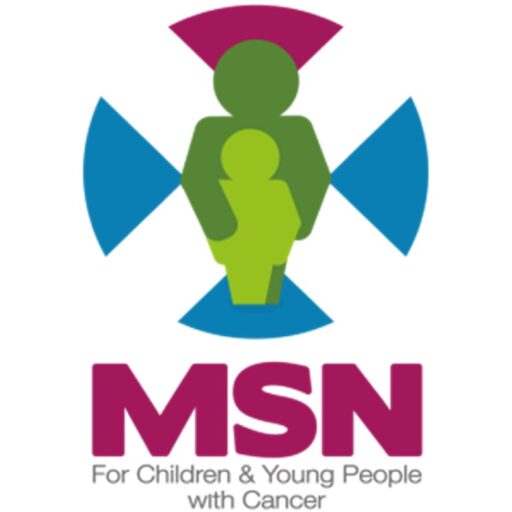Nutrition
The aim of this section is to give you an overview of nutrition specifically for children and young people with cancer and direct you to further information and resources. If you require further advice or would like to discuss your child’s or young person specific needs, please contact the patient’s treatment centre or Paediatric Oncology Outreach Nurse Specialist (POONS)
Importance of good nutrition
The nutrition of a child or young person with cancer is important to consider both at diagnosis and throughout treatment. Most children with cancer will experience difficulties with eating and drinking, due to the cancer itself, treatment or medications, at some stage throughout their treatment. These factors can affect their appetite, and ability to eat. On the other hand, some children who are on steroids as part of their treatment, can feel hungry all of the time. These problems can occur throughout treatment or can be short term.
Studies have shown that a well-nourished child or young person with cancer is more likely to cope better with treatment, have reduced complications and is more able to fight infection. It is also important to ensure adequate energy and nutrients are provided to support normal growth and development throughout treatment. A good nutritional status will also maximise quality of life by allowing a child or a young person to engage in play or their normal activities when able.
Diet & Neutropenia
Neutrophils are white blood cells that help fight infection. Having blood cancer or treatment for any type of cancer will lower neutrophils making your child or young person more at risk of infections, including those from food. To reduce the risk of food related infection it is important that good food handling and hygienic practices are followed and foods with a higher risk of causing an infection are avoided. Advice can vary slightly depending on the centre your child or young person is treated but these resources are a good place to start.
Diet during treatment
Families often have lots of questions about diet and cancer. These resources cover a wide range of issues you might see when your child or young person has treatment for cancer e.g. poor appetite, excess weight gain, constipation, nausea, vomiting.
- Nutrition (CCLG)
- Helping your child to eat (CCLG)
- Helping your child to eat with a brain tumour (The Brain Tumour Charity)
- Cancer Diet: A patient’s guide to nutrition and healthy eating (Breakthrough Cancer Research)
Teen resources
The following resources are designed specifically for teenagers.
- Nutrition and Cancer: Eating a healthy and balanced diet (Teenage Cancer Trust)
- Food & Cancer (Trekstock)
- Nutrition & Cancer (Trekstock)
- Street Veggie
Steriods
Some treatment protocols use high doses of steroids as part of their treatment plan. Steroids can have a variety of side effects including weight gain and a big appetite. If this is something you are struggling with, the resources below should help.
When on steroids it is important to look after your bone health. A healthy balanced diet rich in calcium for bone strength and Vitamin D to help your body absorb calcium can help prevent future issues. For more information on calcium use the link below:
Remember to check with your medical team before starting any new supplements. It is not recommended to take high dose vitamin or mineral supplementation.
Alternative Diets
Some families will look for alternative diets that they think will benefit their child. There are many different diets claiming to be beneficial, but many have little or no evidence to support them. Restricting a diet unnecessarily may result in nutritional deficiencies, in a diet that may already be selective due to side effects of treatment. Below is a leaflet discussing some myths around some different diets.
Tube Feeding
If your child struggles to eat and drink, and there are concerns with weight gain, then it may be advisable that your child starts tube feeding to help support nutrition and growth. Tube feeding can be very common in certain types of cancer due to the side effects of treatment. There are two main tubes of feeding tubes: Nasogastric Tube (NG) and Gastrostomy tubes. Information on these tubes can be found below.
Fussy Eating
Fussy eating is extremely common in children without cancer and can be a normal part of growing up as your child explores independence. However, sometimes side effects from treatment can cause children to become fussy eaters fussy eating or make it worse. Reassuringly this is usually this short lived. The resources below have lots of practical and useful information on fussy eating in children.
End of Treatment/Aftercare Resources
It can be hard to know what to feed your child/young person when they have completed their treatment. Assuming the chid/young person does not have problems with weight loss or poor appetite a healthy balanced diet is likely to be most appropriate. More information can be found using the link below:
Further links for helping plan a healthy balanced diet are listed below.
- Live well – NHS
- The Eatwell Guide – UK Gov
- The infant and toddler forum
- Better healthier families – NHS
- Healthy eating for children – (BDA)
- First Steps Nutrition Trust
Lastly, though we know paediatric cancers are not caused by diet the risk of some adult cancers can be reduced by following the following recommendation.
